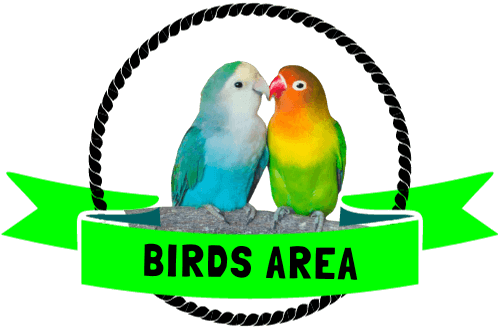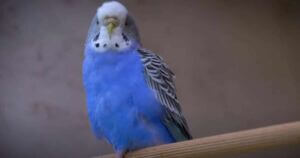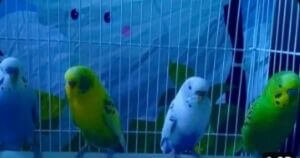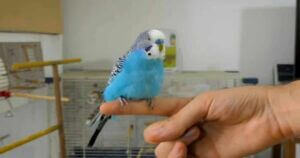How to Care for a Starved Budgie?
To care for a starved budgie, offer high-calorie foods like sugar or honey to encourage eating. Ensure easy access to food.
Budgies are resilient little birds, but they require immediate and careful care when they’ve been starved, either due to neglect or illness.
If you’ve recently rescued a starved budgie or noticed your budgie losing weight drastically, you’re likely feeling anxious and concerned. Don’t worry. With proper care and attention, even a starved budgie can recover fully.
In this guide, I’ll explain the essential steps to nursing a starved budgie back to health, drawing on my personal experience as a bird owner and expert insights.
Recognizing the Signs of Starvation in Budgies
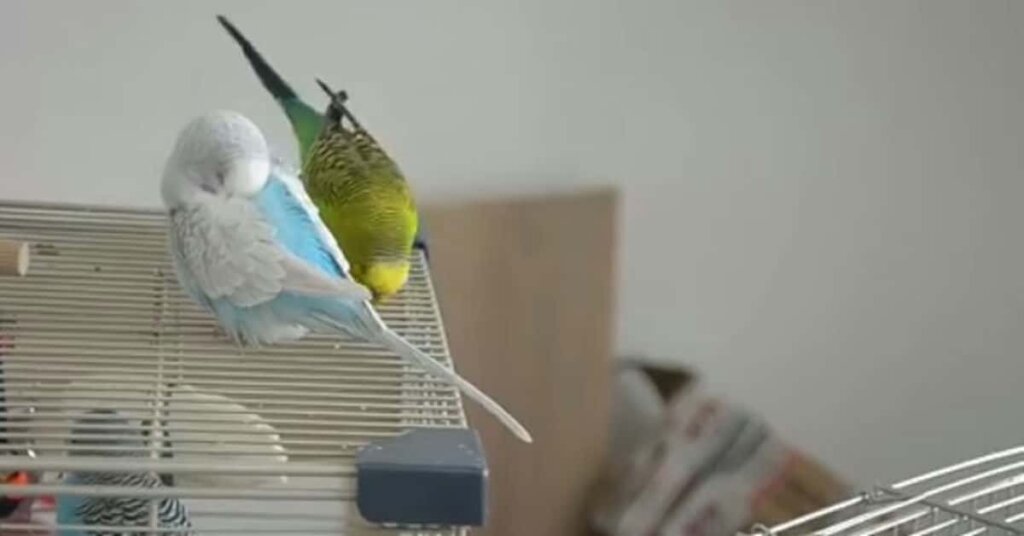
One of the first things you need to do is identify the signs of starvation in your budgie. Some obvious symptoms include:
- Drastic weight loss: A healthy budgie weighs between 30 to 40 grams. If your budgie feels light or its breastbone is prominently sticking out, this could indicate severe weight loss.
- Lethargy and weakness: A starved budgie will be less active, often sitting still for long periods.
- Fluffed-up feathers: This is the bird’s way of conserving heat, a sign they struggle to maintain body temperature.
- Dehydration: If your budgie’s eyes look sunken or its droppings are dry and minimal, dehydration could be part of the problem.
Other physical signs of starvation in budgies include loss of muscle mass, which leads to a skeletal appearance, and pale or discoloured beaks and nails.
Behavioral signs of starvation in a budgie may manifest as:
- Decreased activity and lethargy
- Increased aggression or irritability
- Reduced vocalization or silence
- Excessive sleeping or sitting in one spot for extended periods
- Decreased interest in surroundings and lack of curiosity
It’s crucial to act quickly once you recognize these signs, as starvation in budgies can lead to fatal organ damage if left untreated.
Read more- How do I know if my budgie is unhealthy?
Immediate Care for a Starved Budgie
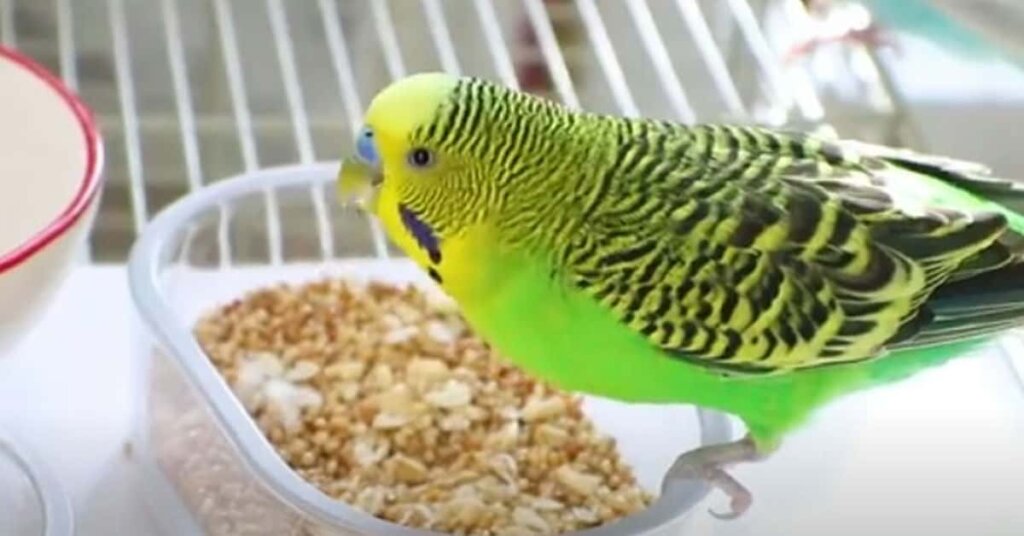
The first 24-48 hours after identifying starvation are critical. However, it’s essential not to shock your budgie’s system by feeding it too much too soon. Instead, follow these initial care steps:
1. Rehydrate First
Rehydration is vital before focusing on food. Dehydration can often accompany starvation and is just as dangerous. You can make an easy electrolyte solution by mixing water with a pinch of salt and sugar.
If your budgie isn’t drinking alone, offer this to it using a syringe or dropper. (Read- What kinds of water budgies do eat).
Tip: If your bird is too weak to drink, gently place a drop of water on the edge of its beak. This should encourage it to take sips without overwhelming it.
2. Slowly Reintroduce Food
Once your budgie is rehydrated, you can begin introducing food gradually. Start with soft foods that are easy to digest, such as:
- Mashed boiled egg: Eggs are protein-rich, which your bird desperately needs. Mix a small portion with water to create a soft paste.
- Soaked millet spray: Millet is a favourite for many budgies, and soaking it makes it easier to digest.
- Soft fruits and vegetables: Try small pieces of cucumber or mashed banana, which are both high in water content and easy for a weak budgie to consume.
Feed small portions every 1-2 hours during the first day. It’s essential not to overwhelm their digestive system, which may have shut down due to prolonged starvation.
Long-Term Recovery Diet
After the first few days, as your budgie starts regaining strength, you’ll want to shift to a long-term recovery diet focusing on rebuilding muscle mass and overall health. A balanced budgie diet typically includes:
- High-quality budgie seed mix: Look for brands that include a variety of seeds, rather than just one type, to ensure balanced nutrition.
- Pellets: These are nutritionally complete foods that offer all the essential vitamins and minerals your bird needs.
- Fresh vegetables and fruits: Budgies love greens like spinach, kale, and broccoli. These are packed with essential vitamins.
Personal Tip: When one of my budgies was underweight due to illness, I added tiny amounts of ground-up nuts (such as walnuts or almonds) to his food. It’s calorie-dense and helps with weight gain, but use unsalted, raw nuts and only offer small amounts.
Monitoring Your Budgie’s Weight
It’s essential to track your budgie’s progress by weighing them regularly. Use a small digital scale, and make sure to weigh them at the same time each day to get an accurate reading.
A healthy weight gain rate for a recovering budgie is 1-2 grams weekly. Rapid weight gain or loss can indicate something’s wrong, so consult your avian vet if you notice this.
Create a Stress-Free Environment
Environment plays a significant role in your budgie’s recovery. A starved budgie is already physically weak, and the added stress can slow down their recovery.
Here’s how to create a calm and comfortable space for them:
- Keep them warm: Starved budgies struggle to regulate their body temperature. Use a bird-safe heat lamp or heating pad to warm their cage (around 25°C). You can also read a detailed article about how to keep budgies warm in winter.
- Limit interaction initially: While it’s tempting to interact with your bird, it’s best to let them rest. Keep loud noises and bright lights to a minimum.
- Provide a quiet, cozy space: Move the cage to a quiet part of your home with little foot traffic.
Seek Veterinary Support
No matter how well-intentioned you are, nothing can replace the guidance of a professional. A vet can assess your budgie’s overall health, check for underlying conditions (such as liver disease or parasites), and recommend supplements or treatments to aid recovery.
When one of my birds was severely underweight, my vet suggested a vitamin B complex supplement to stimulate appetite and energy levels. The supplement helped significantly, especially during the early stages of recovery.
Real-Life Example: Charlie’s Recovery Journey
One of my budgies, Charlie, became dangerously underweight after I was away for a few days, and he refused to eat. He was lethargic, fluffed up, and had a protruding breastbone—classic signs of starvation.
I started with small rehydration fluid and gradually moved on to soft foods. Over two weeks, Charlie slowly regained weight, and his energy returned. It was a slow process, but patience and careful feeding made all the difference. Now, Charlie is back to his happy, active self!
Watch for Signs of Recovery
During the recovery process, watch for positive signs, including:
- Increased activity: A healthy budgie will start moving around more, chirping, and interacting with its environment.
- Improved appetite: Once your budgie starts eating more independently, you’ll know they’re on the right track.
- Steady weight gain: Even a gradual increase in weight is a good sign. Weigh your bird every few days to ensure progress.
Preventing Future Budgies Starvation
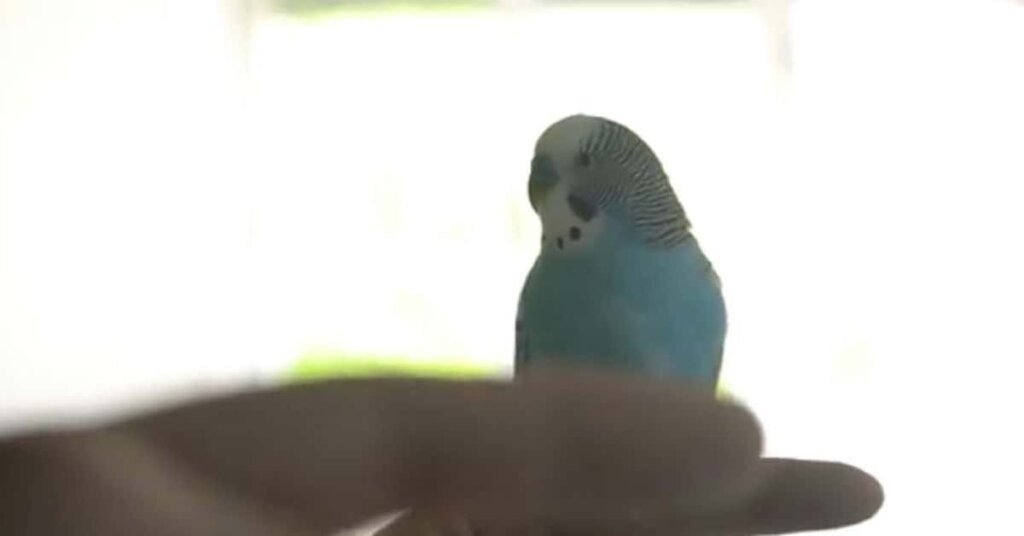
To ensure your budgie never faces starvation again, take preventative measures:
- Feed them a balanced diet consistently, with fresh fruits and vegetables daily.
- Monitor their eating habits closely. If you notice changes in appetite, investigate the cause.
- Weigh them regularly to catch weight loss before they become severe.
FAQs About Caring for a Starved Budgie
1. How long does it take for a starved budgie to recover?
Recovery time varies depending on the severity of the starvation and the budgie’s overall health. For mild cases, recovery can take 1-2 weeks, but in more severe cases, it might take several weeks to a couple of months. Regular veterinary check-ups are essential to monitor progress.
2. What should I feed a malnourished budgie?
Start with easily digestible soft foods like mashed boiled eggs, soaked millet, and soft fruits like banana or cucumber. Once your budgie regains strength, gradually reintroduce a balanced diet of seed mix, pellets, and fresh vegetables.
3. Can I use a syringe to feed a starved budgie?
Yes, if your budgie is too weak to eat on its own, syringe-feeding is a good option. You can use a soft feeding formula designed for birds or make a thin paste of mashed food. Be gentle and patient during the process to avoid overwhelming or choking the bird.
4. What causes budgies to become starved or malnourished?
Budgies can become starved for various reasons, such as illness, stress, poor diet, or neglect. Investigating the underlying cause is important to prevent this from happening again.
5. How can I tell if my budgie is dehydrated?
A dehydrated budgie will have sunken eyes, dry skin, and reduced droppings. Its feathers may also appear dull, and the bird may seem lethargic. Offering water or an electrolyte solution can help.
Wrapping On How to Care for a Starved Budgie
Caring for a starved budgie can be overwhelming, but with the right approach, recovery is entirely possible. Focus on gradual feeding, rehydration, and creating a stress-free environment, and always seek professional help when needed.
Following these steps will give your budgie the best chance to recover fully.
Have you ever helped a budgie recover from starvation? Share your experience in the comments below to help others in the same situation.
Hello Dear, I'm Poli Kolymnia, owner of many birds (including budgies).
With a deep passion for these feathered companions, I'm here to share my expertise and extensive knowledge on birds care.
My articles cover essential topics like diet, housing, care, and health, providing practical tips to help you create a happy and thriving environment for your birds.
